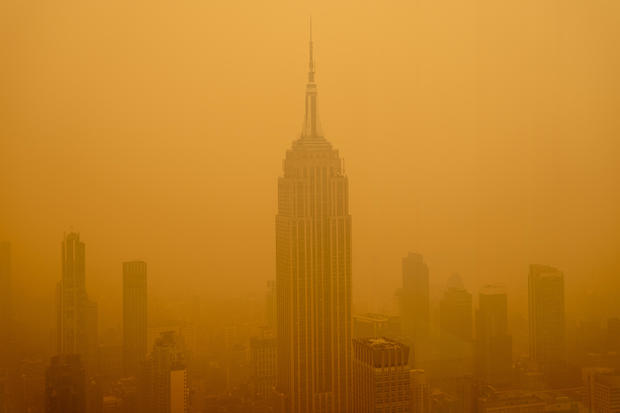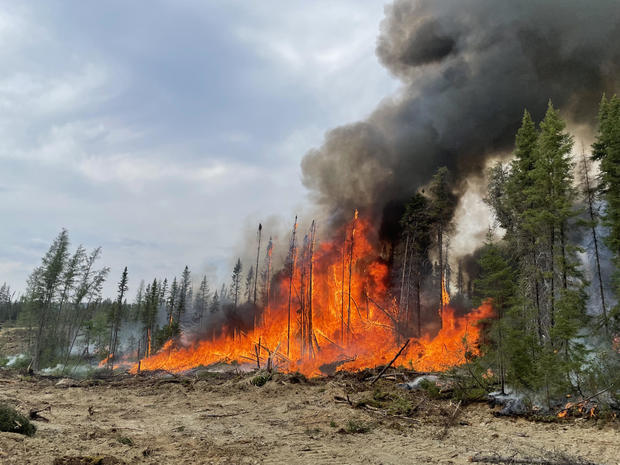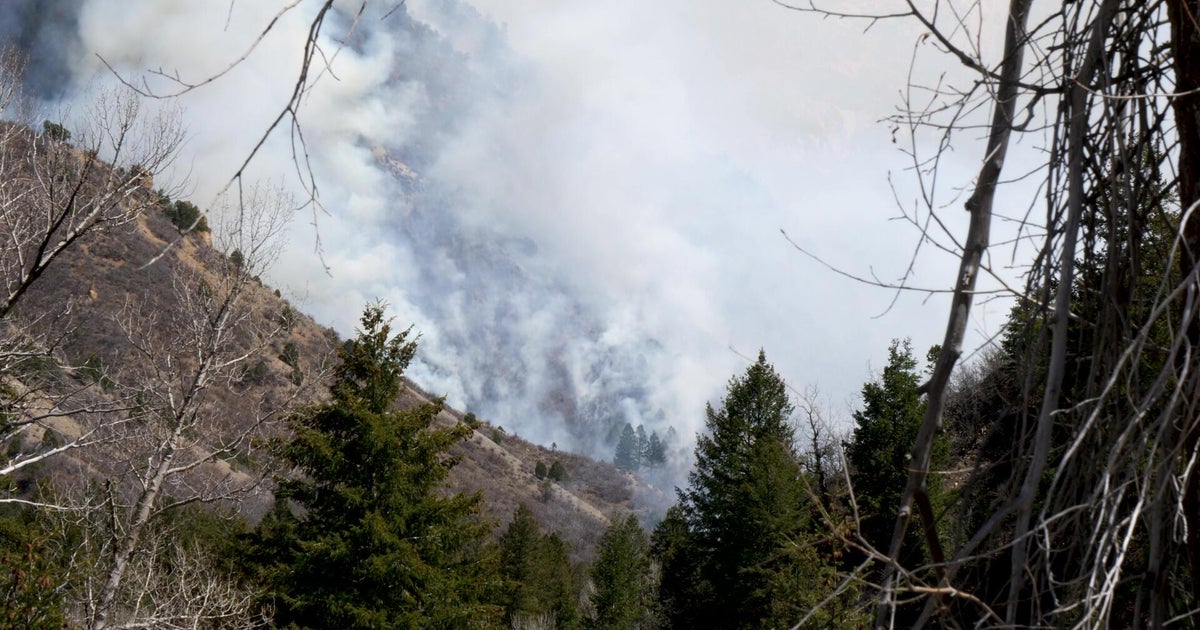Canada at risk of another catastrophic wildfire season, government warns
Canadian officials on Wednesday warned the country could face another catastrophic wildfire season after last year's historic fires.
There were warmer-than-normal temperatures and widespread drought conditions across Canada this winter, officials disclosed. Weather outlooks indicate that Canada can expect higher-than-normal temperatures this spring and summer as well, setting the stage for wildfires.
"With the heat and dryness across the country, we can expect that the wildfire season will start sooner and end later, and potentially be more explosive," Canada Emergency Preparedness Minister Harjit Sajjan said at a press conference.
Canada's wildfire season typically runs from May through October. The country is home to about 9% of the world's forests.
Last year's wildfire season was the most destructive in recorded history, Sajjan said. More than 6,000 fires burned in Canada last summer, tearing through tens of millions of acres of land. Hundreds of thousands of Canadians evacuated from their homes as the wildfires ravaged the country.
Smoke billowed to the U.S., blanketing portions of the East Coast and Midwest. Last June, New York City's air quality became some of the worst in the world in June as Canada's wildfire smoke blew in.
In 2023, Canada's severe weather caused over $3.1 billion in insured damages, officials said.
Canada is preparing for the upcoming wildfire season ,with the federal government working closely with local governments to review what took place last summer. Officials are working on emergency preparedness planning and risk assessments. There's also been a focus on obtaining specialized firefighting equipment and training firefighters.
"It is impossible to predict with certainty that the summer that lies ahead of us, but what is clear, is that wildfires will represent a significant challenge for Canada into the future as the impacts of climate change continue to intensify," Sajjan said.
Government officials also zeroed in on the need to address climate change.
"Extreme weather events are becoming far too familiar to Canadians as the impacts of climate change hit our communities," Minister of Environment and Climate Change Steven Guilbeault said in a statement. "These events are costing Canadians and their governments billions of dollars."
Climate-related impacts currently cost the average Canadian household $720 a year, according to government data. That's projected to rise to around $2,000 a year by 2050.
"We must do more to prepare for the impacts of climate change, and we must speed up our collective efforts to stop adding carbon pollution to this global crisis," Guilbeault said. "After the staggering wildfire season of 2023, we are once again facing the potential for another active wildfire season this year. It is a stark reminder that we need to work together to reduce the risks from our changing climate to keep Canadian communities safe."





